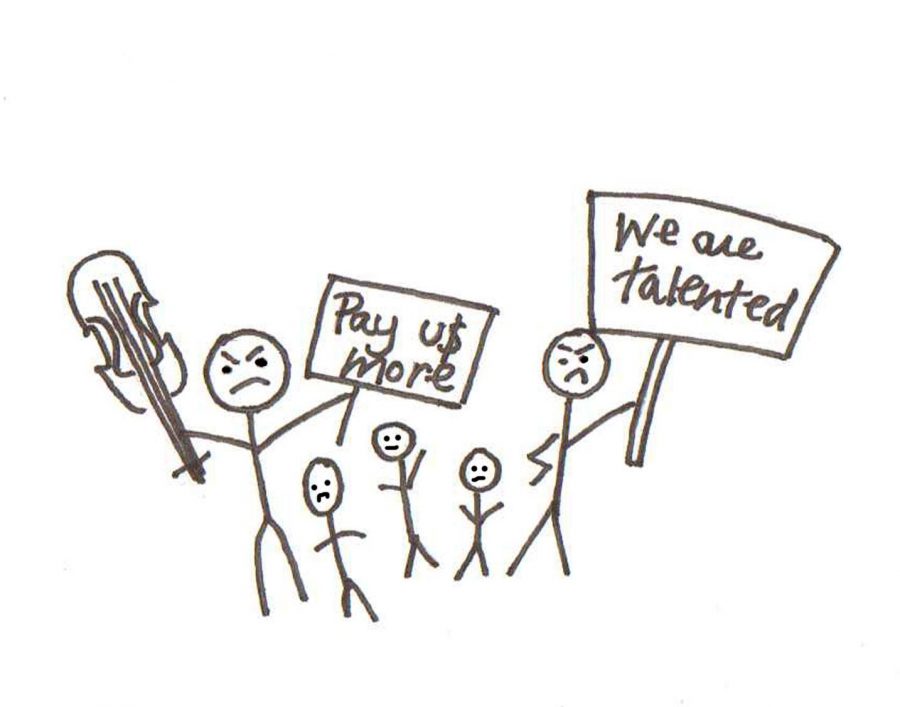Minnesota Orchestra management causes strike
December 10, 2013
Osmo Vanska, conductor of the Minnesota Orchestra, recently resigned after two scheduled concerts were cancelled at New York City’s Carnegie Hall. Allowing Vanska to quit was a serious mistake on the behalf of the Minnesota Orchestral Association board (MOA). This management needs to come to a conclusion with the musicians. It is the board’s fault that this labor strike has been so drawn out.
The 18-month dispute between the MOA and Minnesota Orchestra musicians has become the longest strike in professional orchestra history. Vanska had promised to quit if no resolutions had been made by the time that rehearsals would need to begin for the Carnegie Hall concerts. When the concerts were cancelled and the deadline was not met, Vanska kept his word and stepped down from his position.
Vanska has worked to bring the Minnesota Orchestra into the realm of worldwide recognition. In 2007, the orchestra was awarded a Grammy for Best Orchestral Performance. “Over ten years ago I was honoured to be invited to take up this position. I moved from Finland to the Twin Cities. At that time I made clear my belief that the Minnesota Orchestra could become one of the very greatest international ensembles,” said Vanska in a press statement.
Vanska put a tremendous amount of effort into the ensemble from the beginning of his time there. His contract with the orchestra was scheduled to end in September of 2015. With his resignation, the orchestra’s notable reputation is in grave danger. His passing should not have been so easily allowed to happen in the first place, but should in the least have caused the MOA to open their eyes and come to a conclusion, or to consider some of the many proposals the musicians are making. Neither of these have happened.
The struggle between the Minnesota Orchestra musicians and the MOA board has been a difficult one. As of Oct. 1, musicians have been locked out of Orchestra Hall for one full year without pay or benefits. Proposals have been presented, but no conclusions have been made.
Although both sides are stubborn, and although the MOA has put forward a number of pay proposals that have been denied by the musicians, the musicians have sought for compromise in many more ways, only to be rebuffed by the MOA.
The Minnesota Orchestra’s labor situation needs to be resolved. Now, without a director, a compromise will be even more difficult to achieve between the musicians and the board. The MOA put hope of conclusion in major jeopardy by allowing Vanska to resign. By supporting the musicians of the orchestra in their quest for compromise, one can hope that Vanska will return, or that a new director will keep the orchestra at their musical finest.













Carson Kuball • Jan 13, 2014 at 2:23 am
You did a very good job with this article! The introduction clearly states your position and carries it through to the end. You also have good background information of the topic.
Dan Strand • Jan 13, 2014 at 2:19 am
Awesome article with great facts and background information. Not many people know all the details behind this dispute and you did a good job explaining the situation. Great link to Vanska’s press statement and solid concluding paragraph. Nice job.
Christine • Jan 7, 2014 at 2:22 am
Great article! You started with a clear opinion and provided good detailed background information. I love the Minnesota Orchestra, hopefully they can come to an agreement with the MOA soon!